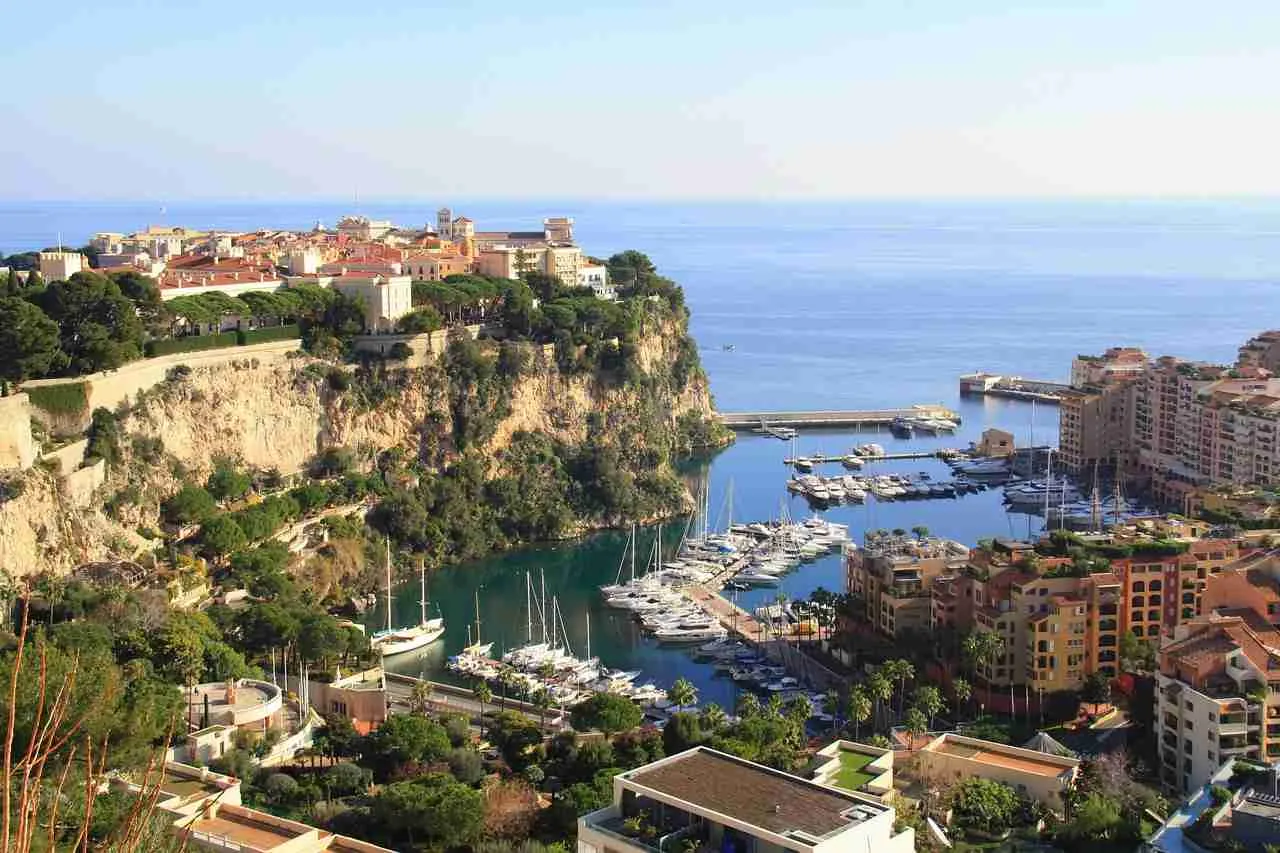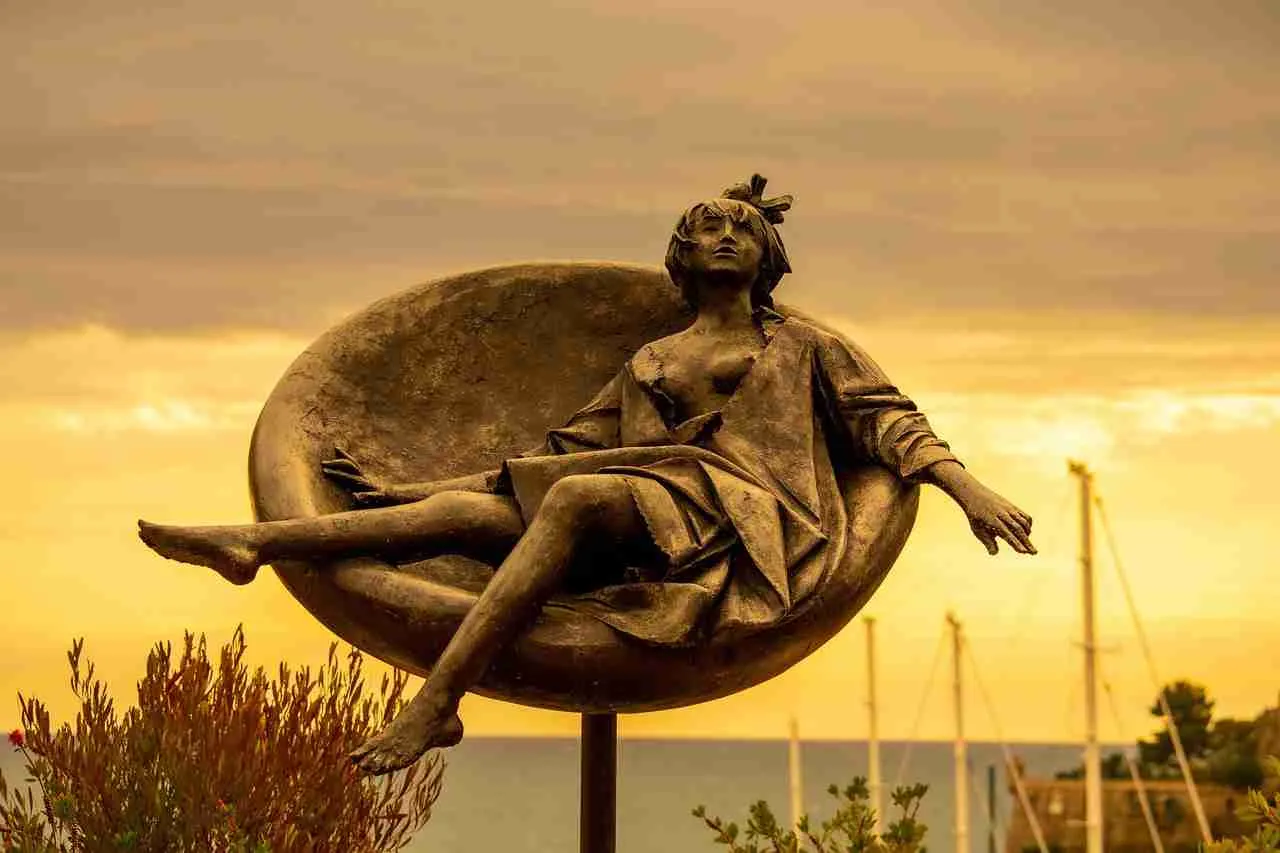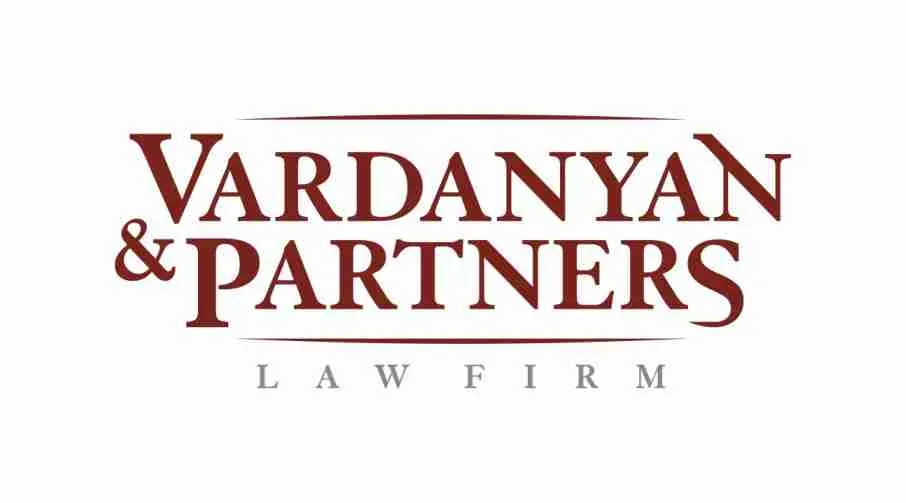Monaco has long captivated high-net-worth individuals and global professionals with its unique zero-income tax policy and exclusive lifestyle. This sovereign city-state on the French Riviera offers a safe, stable environment and unparalleled tax advantages for those who establish residency. For expatriates, investors, and entrepreneurs considering relocation to reduce their tax burden, Monaco provides several pathways to residency – and even the possibility of citizenship over time – all while levying no personal income tax on its residents. .
Monaco’s Zero-Income Tax Advantage
Monaco’s reputation as a fiscal paradise stems from its complete absence of personal income tax for residents – a policy in place since 1869 . In the 19th century, Prince Charles III abolished income tax to attract wealthy residents, leveraging casino revenues to fund the state. Today, this tradition continues: Monaco imposes no income tax, no capital gains tax, no net wealth tax, and no local property taxes on individuals. This means that salary earnings, investment profits, and other personal income can be received tax-free in Monaco (for most nationalities). It’s a key reason the Principality is a preferred residence for the global elite. This favorable tax regime applies equally to Monegasque citizens and foreign residents, with one notable exception: French nationals. Due to a bilateral treaty, French citizens living in Monaco remain taxable by France on their income.
Aside from French nationals (and certain other cases like U.S. citizens who are taxed globally by their home country), a Monaco resident’s worldwide income is not subject to any local tax. No taxes on dividends or interest means investors keep 100% of their investment income. No inheritance tax for direct heirs (spouses and children) means family wealth can be passed on with minimal local taxation. There are also no annual property or housing taxes in Monaco – a stark contrast to many high-tax countries. In short, establishing residency in Monaco can dramatically reduce an individual’s tax burden, legally.
It’s important to remember that while Monaco does not tax personal income, residents must still consider any tax obligations in their country of origin. Monaco participates in international transparency (e.g. automatic exchange of banking information), so new residents are advised to consult tax professionals to ensure they are fully compliant when severing tax residency ties elsewhere.
Residency Pathways in Monaco
Anyone aged 16 or over who intends to live in Monaco for more than three months per year is required to obtain a residence permit (carte de séjour). There is no “citizenship by investment” program in Monaco – foreigners typically begin as residents. Monaco offers several residency pathways for those seeking to settle in the Principality. The eligibility criteria and basic requirements tend to overlap, since all residents must demonstrate accommodation, financial self-sufficiency, and good character.
- Residency through Employment (Work Permit): Securing a job with a Monaco-based employer is a common route to residency. If you are hired by a local company, the employer will sponsor your work and residence permit. Monaco’s government tightly controls employment to favor locals, so the job offer may need approval, but many foreigners do work in Monaco. As an employee, you must still fulfill the general criteria (clean criminal record, accommodation in Monaco, etc.), but your work contract and a letter from the Monaco Employment Service will serve as proof of financial means. Once your employment is confirmed and any necessary labor authorizations are in place, you can apply for a temporary residence permit as a worker. This path suits professionals who have a firm job offer in Monaco or are being transferred by their company.
- Residency through Business Establishment (Entrepreneurship): If you plan to start or relocate a business to Monaco, this can qualify you for residency, provided you obtain the required authorizations. Monaco scrutinizes new business activities via a government approval process. You must submit a detailed business proposal and get a permit from the Monaco Ministry of Economy to operate your company in the Principality. Once your business license is approved, it serves as the basis for your residency application – essentially, you become eligible by virtue of being an entrepreneur who will contribute to Monaco’s economy. You will need to show you have a physical office or facility (or at least a registered address) in Monaco for the business, and of course, a place to live personally. Many applicants in this category also demonstrate significant funds to invest in the business or in a local bank to satisfy the financial sufficiency requirement.
- Residency through Financial Independence (Bank Deposit/Investment): Monaco’s most well-known pathway is residency by showing sufficient financial means to support yourself without employment in the country. Often termed a “residency by investment” (though it’s not a direct investment-for-visa scheme), this route is ideal for the self-sufficient wealthy individual: investors, retirees, or entrepreneurs with external income. To qualify, you must open a bank account in Monaco and deposit a substantial amount of funds as evidence of your wealth. There is no officially stated minimum sum, but in practice Monaco banks expect a significant deposit. According to experts, banks will typically require between €500,000 and €1 million in assets to issue the necessary reference letter confirming you have “sufficient means”. This letter from a Monaco-based bank is a critical document for your residency application if you have no local job. In addition, you need to secure accommodation in Monaco (either purchase or rent a residence). For financially independent applicants, a 12-month rental contract or property deed in Monaco is required to prove you have a place to live.
- Residency through Family Reunification: Family ties can also provide a route to Monaco residency. If a spouse or close family member is already a resident or citizen of Monaco, they may sponsor you to join them. The principal resident must demonstrate they have adequate accommodation and resources to support the family (a larger apartment if children are included, etc.). Monaco will evaluate the suitability of the housing for the family size. Typically, the process involves submitting marriage certificates or birth certificates to prove the relationship, in addition to all the usual documents for each applicant (passport, clean criminal record, etc.). It’s worth noting that children under 16 do not get a residence permit; they are allowed to live in Monaco with their parents without a carte de séjour until reaching age 16, after which they must apply in their own right. Another scenario is marriage to a Monegasque citizen: while marriage itself does not instantly grant Monaco citizenship or residency, it does facilitate a residency permit.

No matter the pathway, several core requirements apply to all residency applicants. Every applicant (including each family member) must provide:
- Proof of Identity and Nationality: A valid passport (and visas if required) for each applicant.
- Clean Criminal Record: Official extracts of one’s criminal record or police clearance certificates from your country of nationality and from your recent country of residence (covering the last 5 years). Monaco wants assurance that you have no serious convictions; even a sworn statement of no criminal convictions may be requested.
- Evidence of Accommodation in Monaco: As noted, this can be a rental contract, a purchased property deed, or an official attestation from a resident with whom you’re staying. The housing must be appropriate for the number of occupants (authorities may check that a family isn’t crammed into a studio, for instance). A rental must typically be for a minimum of a year. If you are living with a friend or relative in Monaco, a completed accommodation certificate reviewed by a special commission is required.
- Evidence of Financial Means: Depending on the route – an employment contract if working, a Monaco bank’s reference letter for investors, proof of business ownership, or evidence of being supported by a spouse or guardian – you must convince the authorities that you will not become a financial burden on the state. For independent applicants, banks in Monaco essentially act as gatekeepers, sponsoring your residency by vouching for your wealth. For employed persons, your salary should be sufficient to live on, and for entrepreneurs, projected business income or external income should be shown.
- Health Insurance: While not always emphasized in overviews, having health coverage (through employment or private insurance) is important when residing in Monaco. It ensures you can access Monaco’s excellent healthcare system. Some application checklists include proof of health insurance as a requirement for the residence card.
- Miscellaneous Documents: These can include birth certificates, marriage certificates (to verify family relationships or name changes), and potentially character references. All documents in foreign languages should be translated into French. Additionally, passport-sized photographs are needed for the application.
With your eligibility established and documents prepared, the next step is to navigate Monaco’s application process, which involves coordination with French authorities (for non-Europeans) and an in-person interview in Monaco.
The Monaco Residency Application Process (Step by Step)
Obtaining a residence permit in Monaco is a multi-stage process that typically unfolds as follows:
1. Preliminary Entry Visa (for non-EU/EEA nationals): Monaco does not issue its own entry visas, so citizens of countries outside the EU/EEA/Switzerland must first secure a French long-stay visa (visa de long séjour) valid for Monaco. This is a Type D visa obtained through a French consulate or embassy in your home country, specifically indicating the purpose of residency in Monaco. It involves an application to French authorities with similar documentation (proof of funds, housing, etc.) as Monaco will require. EU/EEA nationals do not need a visa to enter Monaco thanks to freedom of movement; they can skip this step and directly apply to Monaco authorities, but they still must meet all residency requirements. Timeline: It’s wise to allow a few months for the visa, as background checks are conducted. Once you have the visa and arrive in Monaco (or if you are visa-exempt as an EU national), you should plan to apply for the residence permit within 90 days of arrival.
2. Prepare Required Documentation: As detailed in the previous section, gather all necessary documents before lodging your application. Each document may need to be less than 3 months old (for certificates) at the time of submission, and any foreign-language documents (e.g., police record from your home country) should be officially translated into French. It’s recommended to have multiple certified copies of each key document. This preparation stage is crucial; missing paperwork will delay your application. Monaco’s Public Security Department (Police) will not accept an incomplete dossier.
3. Submit Application and Schedule Interview: Residency applications in Monaco are handled by the Residents Section of the Directorate of Public Security. You (or your representative) must schedule an appointment with this office to submit your application. During the appointment, you will hand over all your documents for review. Increasingly, Monaco allows starting the process online via the MonGuichet.mc portal, but an in-person visit is still required for identity verification and the interview. The waiting time for an appointment can be several weeks, especially in peak seasons, so it’s advisable to request it in advance. At the time of booking, you’ll be told what documents to bring (which should match the list you’ve prepared).
4. Attend the Residency Interview: When the appointment day comes, the main applicant (and any accompanying family members applying) must attend an interview with a Monaco official. This is a standard part of the procedure – essentially a meeting to validate the information in your application and ask a few questions. During the interview, expect queries about your background, what you plan to do in Monaco (employment or simply live retired, etc.), your family, and your reasons for moving. Fingerprinting and photographs are typically taken at this stage for the residency card.
5. Government Diligence and Approval: After the interview, your application enters the processing phase, which involves thorough checks by Monaco’s authorities. The Public Security Department will perform background checks to confirm your criminal record information and generally ensure you are a suitable candidate (they may verify the source of your funds, etc.). At this point, Monaco also often consults with French authorities (especially for non-EU nationals) as part of security screening. This compliance review can take several weeks. In practice, applicants report a waiting time of around 6–8 weeks for a decision after the interview. During this period, you should remain available in case any additional information is requested. If you applied with a visa, ensure your visa doesn’t expire; if needed, you might have to extend the French visa while waiting.
Approval: Once everything checks out and the application is approved, you will be notified (by mail or through your contact person) to come and collect your residence permit (or carte de séjour). At collection, you’ll pay the issuance fee (see below) and receive your physical permit card.
6. Receive Your Residence Permit (Carte de Séjour): Congratulations – you are now officially a Monaco resident. Initially, you will receive a Temporary Residence Permit (Carte de Séjour Temporaire), which is valid for 1 year. This first permit allows you to live in Monaco and also confers ease of travel within the Schengen area (Monaco’s residence card is recognized for Schengen travel purposes). Keep in mind that the first year is somewhat of a probationary period. The fee for the first issuance is €80 (as set by the Monaco government). Monaco’s residence card doubles as an identification document within the Principality and can even be used to set up digital identity access for Monaco’s e-services).
7. Renewals and Long-Term Residency: Residency in Monaco is conditional on renewal. The one-year temporary card must be renewed annually for the first three years of your stay. Each renewal involves a shorter process – you’ll show that you still meet the requirements (e.g. you still have accommodation, your bank letter can be updated or your work contract is ongoing, and you’ve spent sufficient time in Monaco). After three consecutive years on one-year permits, you become eligible for an Ordinary Residence Permit (Carte de Séjour Ordinaire), which is then valid for 3 years at a time. The first 3-year card issuance costs €100. Obtaining the 3-year card usually requires demonstrating that you genuinely resided in Monaco each year. There isn’t a fixed minimum stay written in law for each year, but in practice Monaco expects at least 3 months of physical presence per year from residents, and certainly that Monaco is your primary home. Many residents do spend well over 183 days in Monaco to avoid being tax resident elsewhere, but Monaco’s own renewal criterion is said to be around 90 days.
After a total of ten years of continuous residency, you can apply for the Privileged Residence Permit (Carte de Séjour Privilégié), which is a 10-year renewable card – effectively the closest thing to permanent residency. The 10-year card costs €160 on first issue It is granted only if you have “genuinely lived” in Monaco for those ten years, meaning you didn’t just hold a resident card in name but actually made Monaco your home. In special cases, Monaco can waive the 10-year requirement for the privileged card (for example, exceptional contributors might get it in 1 year), but this is rare. Fulfilling ten years of residency also opens the door – if one desires – to apply for Monaco citizenship, which we discuss in the next section.
Throughout the process, Monaco’s administration is known to be thorough but efficient and courteous. The fees for the permits (as of latest information) are relatively low: €80 for 1-year, €100 for 3-year, and €160 for 10-year, with smaller fees for renewals. These fees are negligible compared to the financial requirements and living costs. Be mindful of renewal dates; if you let your permit expire without renewal, there is a late penalty (around €50) and you risk having to restart the procedure.
Living as a Monaco Resident – Benefits and Responsibilities

The primary benefit of Monaco residency is, of course, the tax advantage, but it’s worth detailing exactly what that means for a new resident’s financial life, as well as noting the responsibilities that come with this status.
Tax Benefits for Monaco Residents: Becoming a resident of Monaco generally confers tax residency status in Monaco – meaning Monaco is your main taxing jurisdiction. As discussed, Monaco levies no personal income tax on resident individuals . This extends to almost all forms of personal income: wages, consulting fees, investment income, rental income, pensions, etc., are untaxed by Monaco.
Additionally, Monaco does not impose capital gains tax on individuals, so profits from selling assets (stocks, real estate, companies) are not taxed locally . There are no wealth taxes (net worth tax) on individuals in Monaco. Local property taxes are absent too – you won’t get an annual property bill from the city as you would in many countries . Do note, however, that if you rent out a property in Monaco, there is a modest tax of 1% on rental revenue , but this affects landlords rather than most new residents. Monaco also abolished its tax on dividends and does not have a general corporate tax applicable to local earnings – though corporate profits from international activities can be taxed, which is relevant if you start a business here (a 25% tax applies to companies earning more than 25% of their revenue outside Monaco.
Moreover, Monaco’s inheritance and gift taxes are extremely low or zero for close relatives. Inheritances to spouses or direct children are tax-free in Monaco. More distant heirs (like siblings or nieces/nephews) incur a tax, but even the highest rate (for unrelated beneficiaries) is around 16% – still much lower than many countries’ estate taxes. Many Monaco residents also appreciate that there are no forced-heirship rules (Monaco broadly allows freedom in your will, following your nationality’s laws). These factors make Monaco ideal for long-term family wealth planning.
An often overlooked benefit is the convenience Monaco offers for international mobility and privacy. A Monaco residence card allows freedom of travel in the Schengen Area (up to 90 days in other European countries within 180 days) without needing separate visas. For those from countries with restricted passports, Monaco residency can ease European travel. Financial privacy, while no longer absolute in the era of information exchange, is still valued – Monaco’s banking sector is used to working discreetly with affluent individuals.
Responsibilities and Substance Requirements: Gaining Monaco residency for tax purposes isn’t simply a paper exercise – you are expected to genuinely establish your life in Monaco to maintain the benefits. The government prioritizes “substance over form”. Practically, this means residents should spend a significant amount of time in Monaco each year. While, as noted, the legal minimum presence is not explicitly 183 days, it’s wise to avoid spending more time in any one other country than you do in Monaco to prevent other nations from claiming you as a tax resident. Monaco officials require proof that you have actually been living in your Monaco home – for example, they may check that you have active utility bills (electricity, water, internet) in your name and that usage levels indicate regular habitation.
They will also ensure the property is of a size suitable for you/your family (no “fake” residences). Fulfilling these conditions is important at each renewal. In short, you must truly move your center of life to Monaco: this includes moving personal belongings, possibly registering a car or driver’s license in Monaco, and integrating into the local community to some extent. Many successful Monaco residents recommend immersing yourself in the Principality – not only to meet the official requirements but also to get the most out of what Monaco offers.
Another responsibility is to maintain good conduct. Monaco is very safe and has zero tolerance for residents who cause security issues. A serious criminal offense or even notorious scandal could jeopardize your residency status. The residency card can be revoked by the Prince’s government if someone is deemed undesirable (though this is rare and typically involves egregious situations like major crimes).
Finally, Monaco residents should be aware of international tax compliance responsibilities. Monaco will not tax you, but if you are a U.S. citizen or have trusts and assets elsewhere, you have to continue filing required forms (e.g. the U.S. IRS still taxes its citizens globally, Monaco residency notwithstanding). Monaco’s participation in the Common Reporting Standard means your Monaco bank will report your account (balances, interest) to your home country’s tax authorities automatically each year.
Pathways to Monaco Citizenship

Many who relocate to Monaco remain content with the renewable residency status, continuing to enjoy Monaco’s benefits while retaining their original citizenship. Monaco does not have a direct citizenship-by-investment program; becoming a Monegasque national is a much more involved process, subject to strict criteria and the personal discretion of Monaco’s Sovereign Prince. However, for those making Monaco their long-term home, the idea of obtaining Monaco citizenship (and passport) may hold appeal – for example, to secure a permanent stake in the country, gain voting rights, or simplify travel further. Here we provide an in-depth explanation of how one can acquire Monaco citizenship, either by naturalization or other special routes, and what the requirements entail.
Naturalization by Long-Term Residence: The primary avenue for a foreigner to obtain Monaco citizenship is through naturalization after at least 10 years of continuous residency. The core requirements for naturalization include):
- Continuous Legal Residency for 10 Years: You must have legally and habitually resided in Monaco for a minimum of 10 consecutive years at the time of application . This clock starts not from your first day in Monaco, but from the date your residency was officially established (the issue date of your first carte de séjour). Interruptions in residency or prolonged absences can reset or pause this clock. Essentially, you need to demonstrate a decade of commitment to living in Monaco. This requirement is waived if Monaco was your place of birth and you have lived there (but those cases usually already have other claims to nationality), or in certain special circumstances at the Prince’s discretion.
- Integration into Monegasque Life: Unlike some countries, Monaco doesn’t have a formal citizenship test, but you must show integration into the Monegasque community – this means familiarity with the French language (the official language) and knowledge of Monaco’s culture, customs, and way of life. There’s no standardized exam, but during the citizenship process officials may assess your level of integration through interviews. Essentially, an applicant should not be a stranger in his own city – involvement in local activities, French language proficiency, and generally living “like a local” bolster your case.
- Renunciation of Prior Citizenship: Monaco usually requires new citizens to renounce their previous nationality upon naturalization. This is a significant factor to consider. However, there are some exceptions: for example, if an applicant is from a country that does not allow renunciation or if the Prince grants an exemption. Interestingly, one key exception is if you acquire Monaco citizenship by marriage (discussed below), you may be allowed to keep your original citizenship. But in standard naturalizations, be prepared to give up your old passport.
- Evidence of Good Character: Just as for residency, you’ll need a clean criminal record and good moral standing. Any legal troubles, either in Monaco or abroad, can derail a citizenship application. Being a responsible resident (no issues with law, paying bills on time, perhaps even contributing charitably or otherwise to Monaco) helps demonstrate you’re the kind of person Monaco wants as a citizen.
- Military Service Clearance: If your country of origin has mandatory military service, Monaco will require proof that you have fulfilled those obligations or are legally exempt. This ensures you don’t have conflicting loyalty or pending duties elsewhere.
- Financial Stability and Contribution: While not an official “checkbox,” it is noted that having substantial economic stability and ties to Monaco can support your citizenship bid. If you own property in Monaco, run a local business, or have made investments benefiting Monaco’s economy, it reflects positively. Long-term employment in Monaco, local family ties, and anything that shows you are rooted in Monaco’s society will strengthen your case.
The Naturalization Process: Applying for Monaco citizenship is a formal and somewhat delicate procedure. You submit a citizenship application to the Directorate of Judicial Services in Monaco, essentially the Ministry of Justice. They will review your file to ensure you meet all legal requirements (the 10-year rule, etc.) and then compile a report. Uniquely, the final decision rests with the Sovereign Prince. The Prince of Monaco personally signs off (or refuses) each naturalization by issuing a Sovereign Ordinance granting citizenship. This is not just a rubber stamp; it’s a discretionary choice.
Even if you check all the boxes, Monaco emphasizes that naturalization is a privilege, not a right. The Prince may deny an application without providing reasons. In practice, if you have been a model resident and meet the criteria, your chances are good – many long-term residents do become citizens each year , reflecting genuine integration. The process from application to decision can take some time (a year or more is not unusual), and often the French government is consulted before final approval (since granting someone Monaco citizenship effectively gives them rights to live in France/EU as well, due to agreements). If approved, a public ordinance is published and you become a citizen officially. You would then renounce your old citizenship (if required) and can apply for a Monaco passport and national identity card.
Citizenship by Marriage: Another pathway to Monaco nationality is through marriage to a Monegasque citizen, though it still requires time and conditions. If you marry a Monaco citizen, you do not instantly get citizenship. However, after 10 years of marriage, the foreign spouse may opt to acquire Monaco nationality by declaration. The conditions are that the marriage must still be subsisting (and not legally separated) at the 10-year mark, and the Monegasque spouse must still be a citizen (i.e. they haven’t given up their nationality) . The interesting aspect of this marriage route is that the foreign spouse who naturalizes may be allowed to keep their original citizenship, according to Monaco’s nationality law. This is a notable exception to the no-dual-citizenship rule: it’s designed to encourage integration without forcing the spouse to drop their birth nationality.
Other Routes: There are a few other rare scenarios for Monaco nationality. Descent: Children born to Monaco citizen parents generally inherit citizenship. If born in Monaco to non-Monegasque parents, a child doesn’t get citizenship by soil, but if that child’s mother or father was born in Monaco as well, there is an option at age 18 to choose Monaco nationality. Also, an adopted child can sometimes get citizenship by a special declaration. These cases are quite specific and usually involve people who already have some Monaco connection by family – likely outside the scope of this guide, which is for those starting as expats.
Honorary Citizenship: In exceptional cases, the Prince can grant citizenship by Sovereign Ordinance as an honor, even if someone hasn’t met the 10-year requirement. This has happened for a few high-profile individuals who were deemed to have greatly contributed to Monaco. It’s extremely uncommon and not something one can plan for or rely on.
Renouncing Citizenship and Dual Nationality: If you reach the point of being offered Monaco citizenship, the requirement to renounce your old citizenship (for most people) means you would be fully committing your future to Monaco. Monaco does not generally tolerate dual allegiance – the principality is small and expects loyalty.
Benefits of Citizenship: What would becoming a Monegasque actually get you, beyond what you have as a resident? For one, a Monaco passport is quite powerful for travel (it’s essentially treated similar to a French passport in terms of mobility, with visa-free access to many countries). Monaco citizens also have the right to vote in local elections and can engage in political life. Certain professions or concessions in Monaco might be open only to citizens.
Additionally, Monaco citizens enjoy protections of the state in a broader sense – for example, if international agreements change, a citizen’s right to stay is absolute, whereas a resident’s status is still conditional on renewal. However, it’s worth noting that from a tax perspective, citizens and residents are treated the same in Monaco (no income tax for either). Unlike some countries, Monaco does not tax its citizens abroad either.
Final Thoughts
Relocating to Monaco can be a life-changing decision, unlocking significant financial advantages in a legally sound way. What emerges is that Monaco’s system, while selective, is transparent and well-defined: if you can demonstrate the required accommodation, financial independence, and integrity, Monaco extends a warm welcome in the form of residency. The zero-income tax policy, rooted in over 150 years of tradition, remains the crown jewel of Monaco’s offerings to newcomers. It has attracted a cosmopolitan community of expatriates who enjoy not only tax freedom but also a high degree of personal safety, service quality, and international connectivity in this small principality.
In summary, Monaco offers a unique combination of robust financial incentives and a prestigious lifestyle, underpinned by a stable government and clear rules. It is not a zero-tax wild west – it’s a zero-income-tax society governed by law and order, which is exactly what makes it sustainable and respected globally. For the expatriate professional or investor eyeing relocation, Monaco represents both a practical strategy to maximize one’s financial well-being and an aspirational step into an exclusive enclave of like-minded international individuals.

Lusine Sargsyan
Attorney
